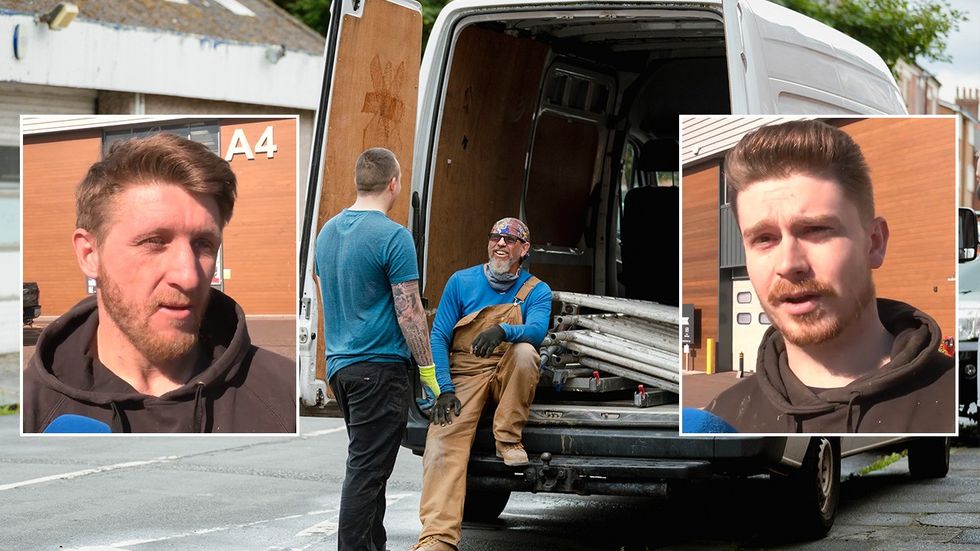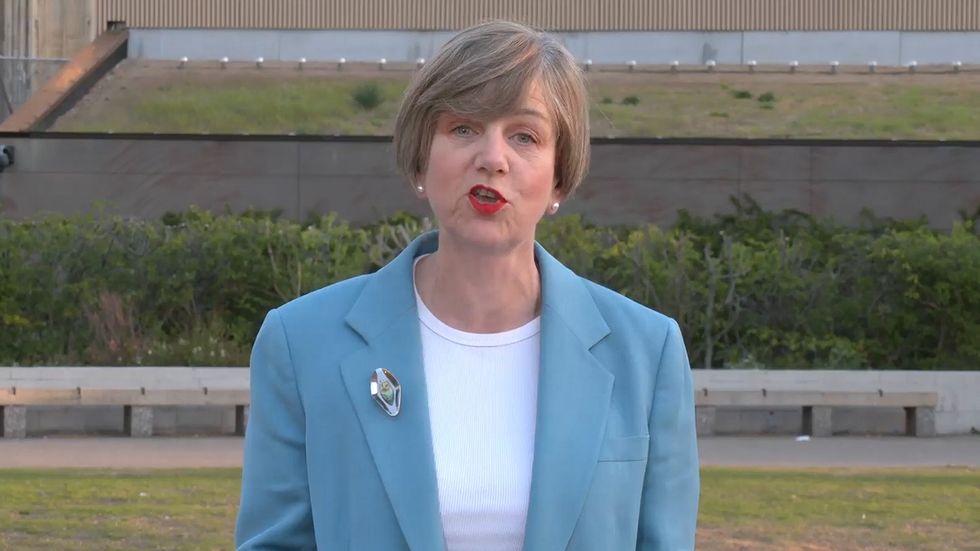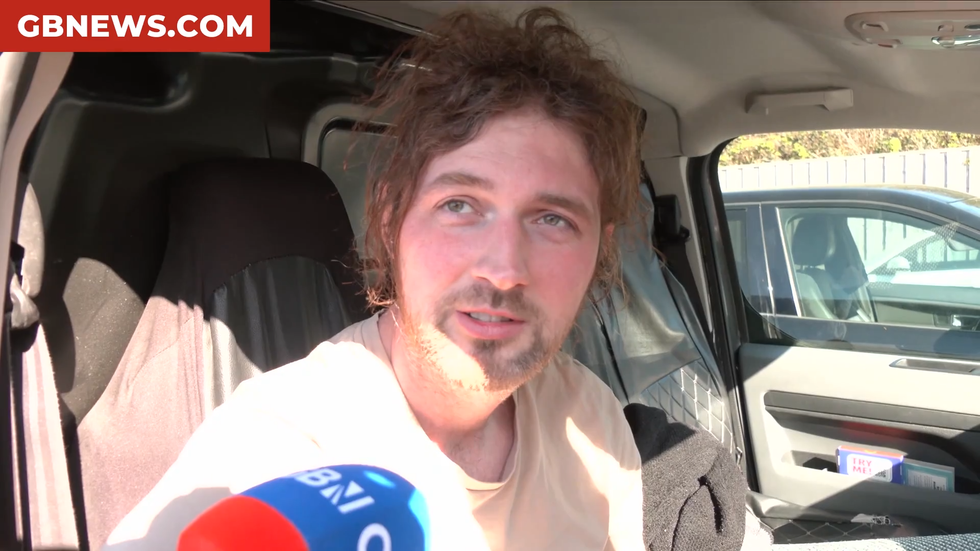Georgia Pearce
Guest Reporter
Britain's van drivers have hailed Labour's decision to push back a ban on petrol and diesel vehicles by 2030, following the Government's announcement that it has been delayed until 2035.
Speaking to GB News about the decision, Labour's Future of Roads minister Lilian Greenwood said that moving the ban to 2035 gives the industry "certainty, stability and confidence".certainty, stability and confidence".
From 2030 to 2035, manufacturers will also be permitted to continue selling hybrid vehicles, including full hybrids like the Toyota Prius and plug-in models.
Greenwood claimed the policy aims to provide a "smoother transition" for the automotive industry whilst maintaining progress towards net zero goals.

Speaking to van drivers in Cheshire, GB News reporter Steve Bennett asked Britain's tradesmen for their verdict on the U-turn by the Government.
Expressing their relief at the delay of the ban, one tradesman told the People's Channel that the decision is a "weight off of the shoulders" of van drivers across the nation.
He told GB News: "It's a big, big weight off our shoulders, really. I can carry on just working, I don't need to worry about it.
"It's a big expense looking for a new van, so we're happy that we can keep using the same one and focus on earning money."
LATEST DEVELOPMENTS:

Another self-employed tradesman told Steve that it is "really important" for the industry to keep their current vans, so that they can use the money they would have spent on an electric vehicle on "materials and ourselves instead".
He explained: "It means we can carry on working and keep cracking on. It's a big expense if we've got to fork out the money for a new van, so it's nice to be able to keep on using this one.
"You use the van every single day, and the money is especially needed - you need it for materials, for everything. So it's really important that you don't have to use it for something else."
Another tradesman told GB News that he is especially relieved by the delay, as it means he no longer has to "buy a whole new fleet" of electric vans for his business.

He stated: "I don't have to buy a whole new fleet of vehicles, I think that's the biggest thing to take away from it.
"We already lease all our vehicles, but to take all of our vehicles and then change them all to electric, especially when we're carrying heavy goods, they wouldn't be suitable for our business whatsoever.
"So the fact that we can still keep going with a fossil fuels is important, at the minute anyway."
Echoing the thoughts of the previous tradesman, another van driver claimed that the electric vehicles are "not up to it" in their current specification, and hopes to hold on to his current van for "as long as possible".
He concluded: "It just makes it a lot easier. Electric cars are not really up to it at the moment, obviously they're doing a lot of driving here and they're picking stuff up - the electric cars are not up to it.
"So for me, I can keep this van for as long as I can and then push on through using the diesel. It's a lot easier for me personally."
Find Out More...
Speaking to GB News about the decision, Labour's Future of Roads minister Lilian Greenwood said that moving the ban to 2035 gives the industry "certainty, stability and confidence".certainty, stability and confidence".
From 2030 to 2035, manufacturers will also be permitted to continue selling hybrid vehicles, including full hybrids like the Toyota Prius and plug-in models.
Greenwood claimed the policy aims to provide a "smoother transition" for the automotive industry whilst maintaining progress towards net zero goals.

Speaking to van drivers in Cheshire, GB News reporter Steve Bennett asked Britain's tradesmen for their verdict on the U-turn by the Government.
Expressing their relief at the delay of the ban, one tradesman told the People's Channel that the decision is a "weight off of the shoulders" of van drivers across the nation.
He told GB News: "It's a big, big weight off our shoulders, really. I can carry on just working, I don't need to worry about it.
"It's a big expense looking for a new van, so we're happy that we can keep using the same one and focus on earning money."
LATEST DEVELOPMENTS:
- Labour roads minister denies 'watering down' net zero goals despite hybrid vehicle law change
- Donald Trump’s car tariff forces Labour to have 'renewed urgency’ over 2030 petrol and diesel ban
- Labour to ban all petrol and diesel car sales by 2030 but will allow hybrids in major EV law change

Another self-employed tradesman told Steve that it is "really important" for the industry to keep their current vans, so that they can use the money they would have spent on an electric vehicle on "materials and ourselves instead".
He explained: "It means we can carry on working and keep cracking on. It's a big expense if we've got to fork out the money for a new van, so it's nice to be able to keep on using this one.
"You use the van every single day, and the money is especially needed - you need it for materials, for everything. So it's really important that you don't have to use it for something else."
Another tradesman told GB News that he is especially relieved by the delay, as it means he no longer has to "buy a whole new fleet" of electric vans for his business.

He stated: "I don't have to buy a whole new fleet of vehicles, I think that's the biggest thing to take away from it.
"We already lease all our vehicles, but to take all of our vehicles and then change them all to electric, especially when we're carrying heavy goods, they wouldn't be suitable for our business whatsoever.
"So the fact that we can still keep going with a fossil fuels is important, at the minute anyway."
Echoing the thoughts of the previous tradesman, another van driver claimed that the electric vehicles are "not up to it" in their current specification, and hopes to hold on to his current van for "as long as possible".
He concluded: "It just makes it a lot easier. Electric cars are not really up to it at the moment, obviously they're doing a lot of driving here and they're picking stuff up - the electric cars are not up to it.
"So for me, I can keep this van for as long as I can and then push on through using the diesel. It's a lot easier for me personally."
Find Out More...
